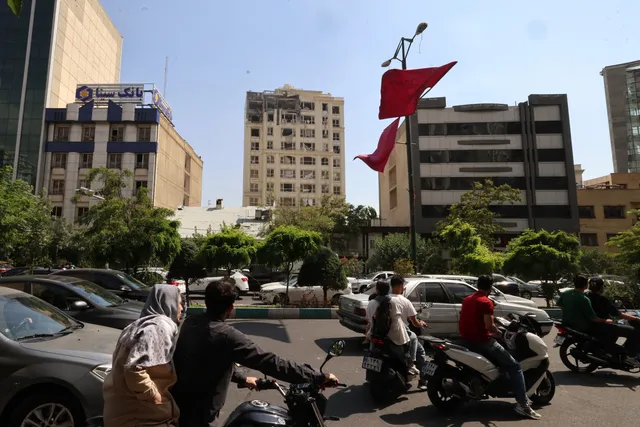The Israel-Iran conflict is a cornerstone of Middle Eastern geopolitics, marked by decades of hostility, proxy wars, and escalating tensions.
In the 1950s, Israel and Iran enjoyed a strategic alliance under Shah Mohammad Reza Pahlavi. However, their partnership, rooted in shared geopolitical interests, crumbled with Iran’s 1979 Islamic Revolution, which ushered in a regime that branded Israel an imperialist foe. The revolution’s leaders called for Israel’s destruction, fundamentally shifting the narrative of their relationship.
Meanwhile, Israel views a nuclear-armed Iran as an existential danger, given Tehran’s hostile rhetoric and actions. Israeli officials have consistently signaled their readiness to strike Iran’s nuclear facilities to prevent weapons development, citing past attacks on Iraqi and Syrian reactors in 1981 and 2007.
Proxy Wars and Covert Operations
For decades, Israel and Iran engaged in a shadow war, avoiding direct confrontation. Iran supported proxy groups like Hamas, Hezbollah, and the Houthi rebels, all labeled terrorist organizations by the U.S., to attack Israel, while Israel conducted covert operations, including cyberattacks and targeted assassinations, against Iranian interests.
This low-intensity conflict allowed both sides to inflict damage without triggering all-out war. However, the delicate balance began to shift with the outbreak of the Israel-Hamas war in October 2023, backed by Iran, intensifying regional hostilities.
The October 2023 Catalyst
Hamas’s brutal attack on Israel on October 7, 2023, killing 1,200 and abducting 250, ignited a regional firestorm, with Iran-backed Hezbollah and Houthis joining the fray. Israel responded with devastating force, deploying troops to Gaza, Lebanon while targeting Syrian infrastructure.
A New Era of Direct Conflict
In April 2024, Iran launched its first direct attack on Israel, firing a barrage of missiles and drones. This assault followed an Israeli airstrike on Iran’s diplomatic compound in Damascus, which killed several Iranian officials, though Israel did not officially claim responsibility.
Israel’s restrained counterattack caused minimal damage, but the exchange marked a dangerous precedent for open warfare. The assassination of Hamas leader Ismail Haniyeh in Tehran in July 2024, attributed to Israel, further escalated tensions, prompting another round of missile and airstrike exchanges in October.
The June 2025 Escalation
On June 13, 2025, Israel launched pre-emptive airstrikes on Iranian nuclear facilities, targeting key infrastructure, scientists, and military figures. The strikes killed Hossein Salami, head of Iran’s Islamic Revolutionary Guard Corps, prompting Iran to vow retaliation and Israel to declare a state of emergency.
Explosions rocked Tehran, signaling a dramatic escalation in the Israel-Iran conflict. This shift from covert operations to overt military action has raised fears of a broader regional war

